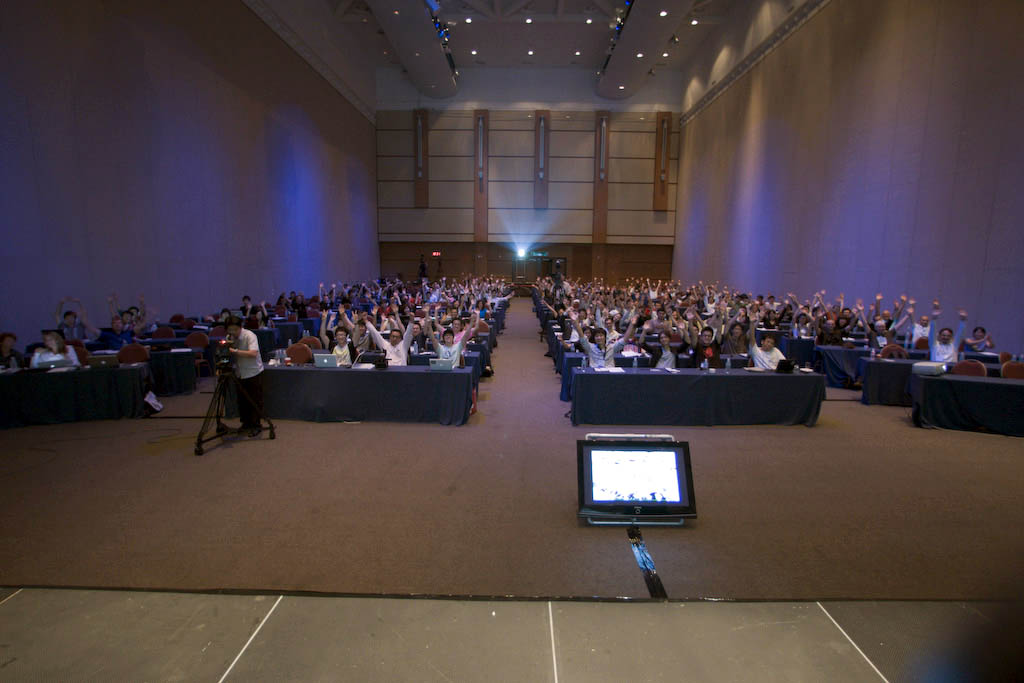The video for the Future Social talk at LIFT Asia can now be uploaded from here with accompanying notes and presentation here
You’re hosting an event and invite a number of so-called experts to speak, the talks are recorded and within a month are distributed on the internet.
It makes sense – videoing what the speakers say opens the talk up from the 80 people in the room to a potential audience of millions, and even if only a couple of dozen bother to watch its a couple of dozen more would have otherwise. After a few events the video archive grows and the talks become part of the conference/school/organisation/host’s brand – the process of choosing whom to invite and what parts of what talks to show reflects the community they hope to build.
Sometimes talks are videoed for internal distribution only – it makes sense particularly when the organisation is large and geographically spread – properly archived the recording can become part of it’s collective memory. It’s not a bad thing – every organisation even those darlings of the search world suffer from problems with hand-eye co-ordination short term memory loss – there’s no such thing as the perfect flow of information. A recording can allow ideas to linger and sometimes spread.
From recent experience (and this is not a dig at the excellently run LIFT Conference, above) the prevailing attitude of event hosts is that the talks will by default be recorded – something that puts the average speaker in a dilemma. With a few exceptions most public presentations are a work in progress an opportunity to articulate ideas and with instant feedback from the audience, figure out what works and what doesn’t. Questions (and the occasional projectile) from the audience highlight what need refining and suggests additional material to be included. Recording every talk is like publishing every draft or iteration of that paper/report/design and expecting people to take away the salient points and to tune into the final version, when in reality they’ll have moved on. In an information overload world you only get one shot at engaging, and with the notable exception of gonzo, you can’t afford to blow it.
Some so-called experts object to recordings because the relative scarcity of their material helps them maintain demand (take a look at the research/presentations whether and how they distribute online as one indicator of whether they’re milking limited ideas for all they are worth). Some are torn between wanting to communicate a message but wanting to maintain a degree of anonymity. For some – every time you press a record button it eats a little of their soul. But mostly its just that not everything is record-worthy.
There’s a simple solution, ask in advance, expect no for an answer..
